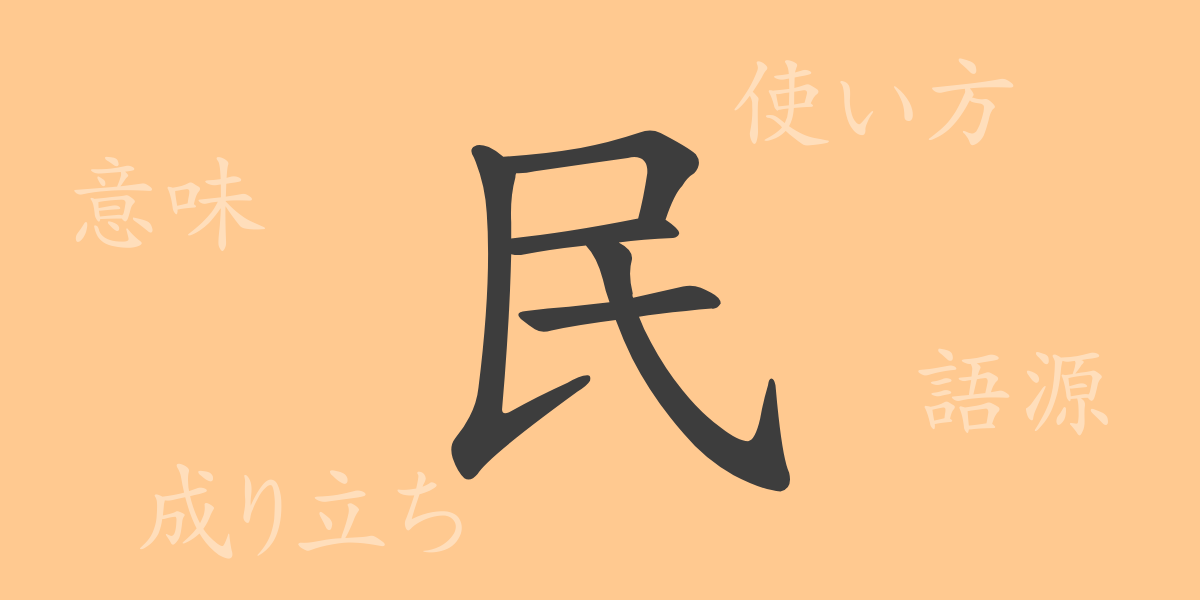Japan’s writing culture is remarkably unique, and among its various elements, kanji (漢字) stands out for its complexity and beauty, attracting attention from around the world. In this article, we focus on the 常用漢字 (jōyō kanji) “民” (min), which is deeply rooted in Japanese daily life and symbolizes society and community. We will explore the history, meaning, and significance of this single character in our lives.
The Origin of 民 (min)
The origin of the kanji “民” (min) dates back to ancient China. It has its roots in pictographs, derived from a phonetic component that means “people of a clan or tribe.” This character represents how ancient people formed groups and lived as communities. Over time, this kanji evolved to include more abstract meanings, and today it is used to represent concepts such as “people” or “citizens.”
The Meaning and Usage of 民 (min)
The kanji “民” (min) is generally used to mean “people” or “residents.” In a social context, it often conveys the meaning of “citizens” or “public” and is frequently seen in political and legal fields. It is also used in the names of companies and organizations, as seen in terms like “民間企業” (minkan kigyō – private enterprise) and “民主主義” (minshu shugi – democracy).
Reading, Stroke Count, and Radical of 民 (min)
The kanji “民” (min) has several basic readings:
- Reading: In on’yomi (音読み – Chinese reading), it is read as “ミン” (min), and in kun’yomi (訓読み – Japanese reading), it is read as “たみ” (tami).
- Stroke count: “民” (min) is a 5-stroke kanji.
- Radical: The radical is “氏” (shi).
Idioms, Phrases, and Proverbs Using 民 (min)
There are several idioms, phrases, and proverbs that include the kanji “民” (min):
- 民間 (minkan) – Private, not belonging to public institutions or the government.
- 民主 (minshu) – A political system where sovereignty resides with the people.
- 民謡 (min’yō) – Traditional songs passed down in regions.
- 民衆 (minshū) – General public, masses.
- 民族 (minzoku) – A group of people sharing a common language, culture, and history.
These idioms and phrases highlight the social and cultural importance of “民” (min) in the Japanese language.
Conclusion on 民 (min)
The kanji “民” (min) holds profound meanings that go far beyond its simple form and is used in various contexts within the Japanese language. It is an essential character for expressing concepts of groups of people, members of society, and citizens, playing a crucial role in our language. Understanding this kanji can deepen insights into Japanese culture and society.

























